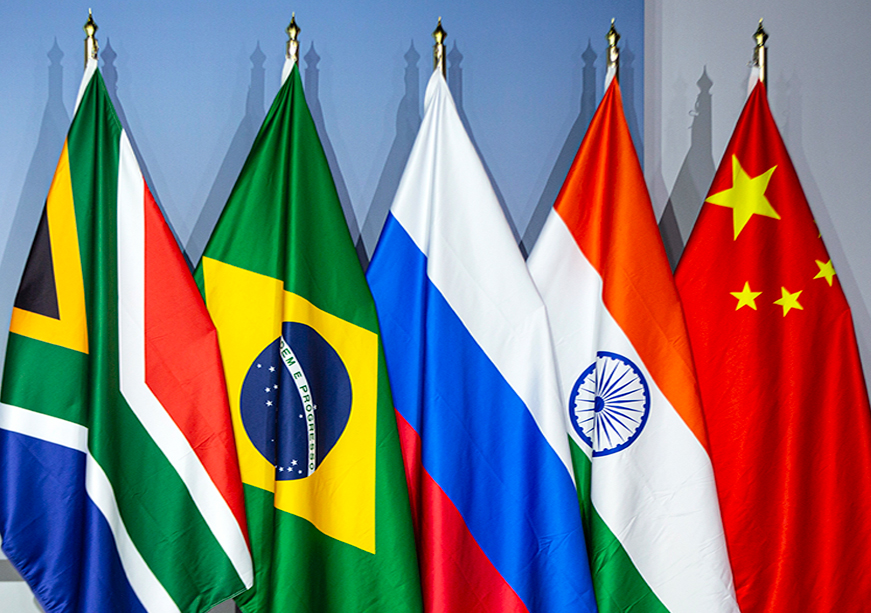For a long time, Japan has been shying away from anything related to or named "security." Due to a very stringent pacifism embedded in its Constitution, Japan has self-imposed the unique interpretation of the idea of "peaceful use of space." For many Japanese, it means that military (Self-Defense Forces) shall not invest, develop, own, operate and use any space assets. The Ministry of Defense (MoD) has no branch on space nor experts on space technologies. From the MoD’s point of view, the Code of Conduct or space security in general is not an issue that it is responsible for.
Thus, those who are interested in the Code are the JAXA (Japanese Aerospace Exploration Agency) and the Ministry of Foreign Affairs (MoFA). JAXA, which itself identifies as an R&D agency, was initially not interested in the Code or space security because its space-crafts are not meant to be operational. However, the increasing risk of collision with space debris may undermine its programmes even if those are non-operational programmes. Also, JAXA regards that this is an opportunity to develop its capability to monitor, mitigate and remove debris. These technological programmes may increase space budget for JAXA.
On the other hand, MoFA, which is a new player in Japanese space policy-making, found that the Code is a stepping stone for increasing its competence in space. Although MoFA was responsible for international negotiation on space at the UNCOPUOS and bilateral meetings, it lacked technical and managerial knowledge and experience. Thus, most of the Japanese delegates dispatched by MoFA were seconded from JAXA or Ministry of Education, Science and Technology (MEXT). However, the new legal foundation, the Basic Space Law, established in 2008, shifted the centre of space policy-making from MEXT to the Cabinet and put more emphasis on "space diplomacy." This new law expects MoFA to draft a plan to use space as a tool for enhancing Japanese diplomatic capability and to actively participate in the rule-making process at the UNCOPUOS, ICG (International Committee on GNSS) and other international fora. The Code in particular became the first case for MoFA to demonstrate its ability to carry out its new task. In order to strengthen the administrative capability and expertise on space, MoFA set up an office called "Space Office" under the Foreign Policy Bureau.
However, Japan did not make an explicit action plan when the European Union proposed the Code of Conduct. Not only because Japan has not been ready yet to engage in the negotiation with the EU but also because the United States, Japan’s major ally, did not express its position against the Code. Japanese government was well aware of the US national space policy which was published in 2006 during the Bush Jr. administration which explicitly rejected any international agreement that binds the freedom of American space activities. Although the Code assumed voluntary participation, the commitment to the Code would make the US space policy more constrained.
From a Japanese perspective, the Code seems to be very suitable for the world after the 2007 Chinese ASAT test. Its voluntary nature would be essential for inviting as many nations as possible. Initially, the EU intended to make the Code a voluntary one in order to include space-faring countries (the United States under Bush Administration in particular). But since the United States under Obama Administration preferred to establish international platform for negotiation based on the EU-proposed Code of Conduct, the dividing line emerged between Western countries (EU, US, Japan and Australia) and China and Russia. By avoiding the division among space-faring countries and making the Code as international norm, the voluntary nature of the Code is utterly important. Of course, it would be much effective if the Code is legally binding, but there is a trade-off. In order to include countries such as China and Russia, it should be based on voluntary participation, at least in the beginning.
The concern over other issues such as the right of individual and collective self-defense is not big in Japan, primarily because it is stated in the Charter of the United Nations, and also because this clause would deter future potential aggression against space assets.
For a long time, Japan has been developing technologies to use space environment responsibly, such as controlled re-entry of upper stages and fairings of Japanese rockets. So, it welcomes the explicit statement that says "the responsibility of States … to take all appropriate measures to prevent outer space from becoming an area of conflict" and complies with the Space Debris Mitigation Guidelines.
The most important clause from the Japanese point of view is Clause 4.3, which states that "when executing manoeuvres of space objects in outer space, for example to supply space stations, repair space objects, mitigate debris, or reposition space objects, the Subscribing States confirm their intention to take all reasonable measures to minimise the risks of collision.". This allows Japan to invest in the development of the technologies to remove space debris. JAXA in particular is very interested in developing debris mitigation and removal technology, but it is well-known that the removal technology can be used as space weapons. Thus, it is extremely important that the Code explicitly allows debris removal activities with good intention.
When Obama administration decided to launch a negotiation about International Code of Conduct based on the EU’s proposal, Japanese government immediately responded to the call by the United States to join the international framework together with Australia. For Japan, the US initiative was welcoming because US objection was the only obstacle for Japan to participate in the Code.
This response underlines the fact that Japanese perspective on the Code is based on its diplomatic and technological concerns, not on its military and security needs. Since MoD is not engaged in the process of decision-making for the Code, it would be difficult to assume that Japan would commit to the Code for security purposes. Although Japan expressed its interest to participate in the process of negotiation for drafting the International Code of Conduct, its objective is not purely driven by the needs for securing healthy environment for space activities. Rather, its objective is driven by the interest of JAXA and MoFA.
(Kazuto Suzuki is a professor at Hokkaido University, Japan)
The views expressed above belong to the author(s). ORF research and analyses now available on Telegram! Click here to access our curated content — blogs, longforms and interviews.




 PREV
PREV

